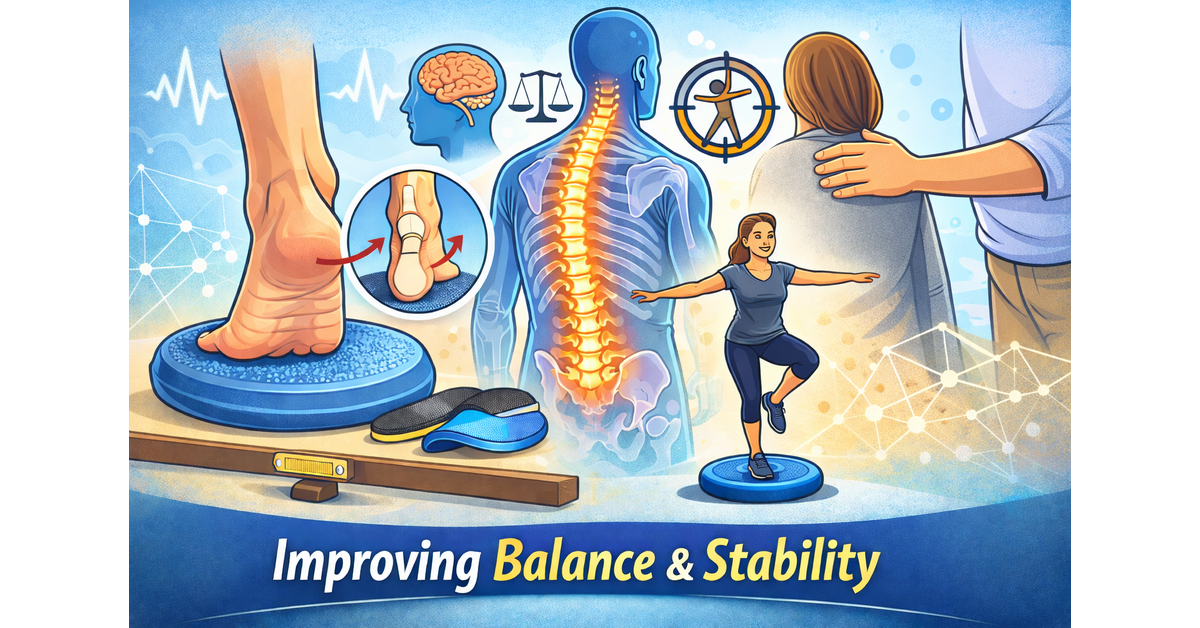How Can Physiotherapy Help Me?
Pain Relief
Physiotherapy can ease pain caused by injury or long-term conditions like arthritis, back and neck pain, and headaches. Physiotherapists use techniques such as manual therapy, massage, and specific exercises to relieve discomfort.
Improved Mobility
Physiotherapy improves mobility, range of motion, and flexibility. This makes everyday tasks like walking, climbing stairs, or reaching overhead easier. Targeted treatment can strengthen muscles, enhance balance, and reduce the risk of falls.
Rehabilitation
Physiotherapy supports recovery from sports injuries, surgery, or strokes. Tailored exercise programs help speed up healing and lead to better long-term results.
Injury Prevention
Physiotherapy can also prevent injuries. Physiotherapists offer advice on posture, safe lifting, and ergonomics. They may also recommend exercises to boost your general health and wellbeing.
Why Choose Physiotherapy?
Physiotherapy is safe, non-invasive, and drug-free. It can improve your quality of life, whether you’re managing pain, recovering from an injury, or looking to stay healthy.
What Do Physiotherapists Do?
The physiotherapists at Isis Chiropractic Centres assess, diagnose, and treat a wide range of symptoms and conditions. They create personalised plans that address your unique needs and goals.
Your First Appointment: The Initial Consultation
Your first visit includes a full medical history and a detailed physical, orthopaedic, and neurological exam. If needed, we can help arrange additional tests such as X-rays or MRI scans.
This consultation usually takes about 45 minutes.
The goal is to find the root cause of your symptoms and rule out any reasons we shouldn’t treat you. We’ll also determine how to tailor your treatment so it’s safe, comfortable, and effective.
If appropriate, you may receive treatment on the same day. However, in some cases, it may be necessary to wait until your second visit.
Your Second Visit: Report of Findings
During this appointment, we will:
Explain the results from your examination
Discuss any scans or X-rays
Confirm your diagnosis
Outline a personalised treatment plan
Once your questions are answered and you’re ready to begin, treatment starts. We find that patients who fully understand their condition achieve better long-term results.
What Treatment Might Include
Our physiotherapists use a combination of:
Manual therapy: Hands-on techniques to reduce stiffness and improve movement
Massage therapy: To ease muscle tension and promote relaxation
Postural and lifestyle advice: Tips on lifting, carrying, and daily activities tailored to your routine
Exercise prescription: Custom exercises to build strength and prevent future issues
We also offer advanced modalities to enhance your recovery, such as:
Follow-Up Appointments
The number of treatments you need depends on:
The type of condition
How long it has existed
What you want to achieve
We also consider any risks of recurrence. If you’ve had repeated issues, we’ll design a treatment plan focused on long-term relief—not just short-term fixes.
Remember, pain is only part of the story. Just because the pain goes away doesn’t mean the problem is resolved. Ending treatment too early often leads to the issue coming back.
To prevent this, we recommend ongoing care and a long-term exercise program. This will help stabilise the affected area, reduce the risk of recurrence, and keep you healthy.
If you’re interested in a consultation please Contact us Today.



